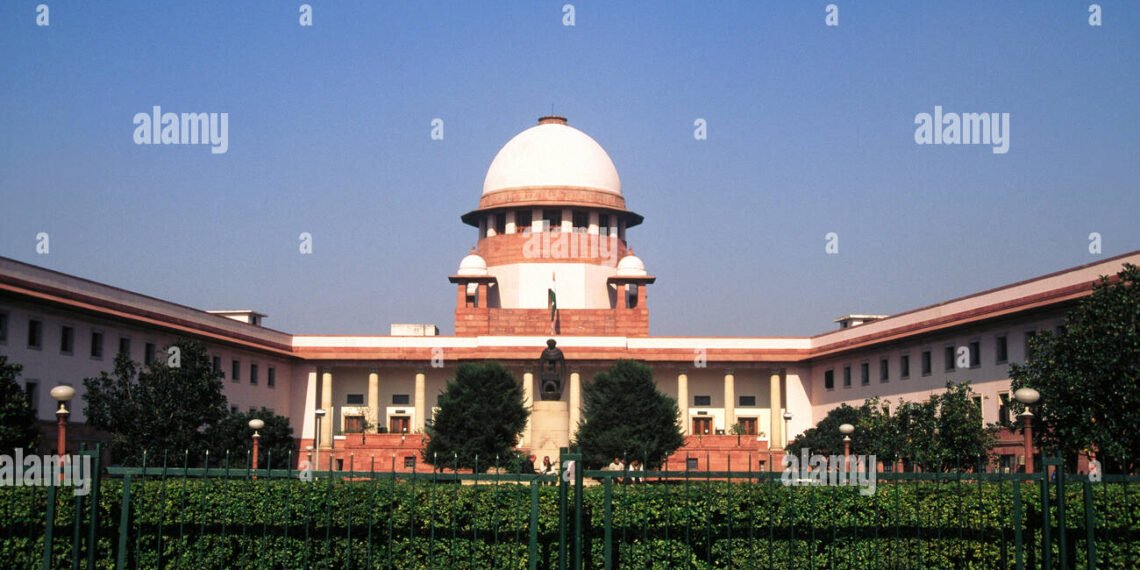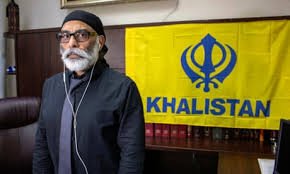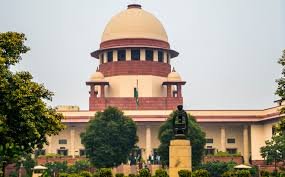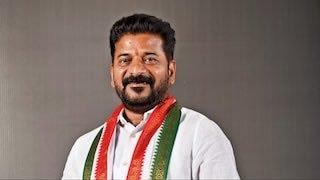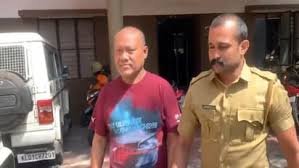Sending the tape to a reputed overseas lab — such as those accredited in the UK, US, or Singapore — would bring international standards of chain-of-custody, voice authentication, and digital integrity testing.
BY Navin Upadhyay
The alleged audio tape purportedly featuring the voice of former Manipur Chief Minister N. Biren Singh, making provocative remarks about the May 3 ethnic riots, has been pending before the Supreme Court of India for nearly a year — yet no conclusive progress has been made in verifying or rejecting the voice sample.
The Court is scheduled to resume hearings on November 3, 2025, in Writ Petition (Civil) No. 702 of 2024 — Kuki Organization for Human Rights Trust vs. Union of India & Another, listed before Court No. 13 as Item No. 31.
The controversy stems from the prolonged and inconclusive handling of the tape by national forensic agencies. The Central Forensic Science Laboratory (CFSL) spent nearly five months examining the recording, only to later declare that it was “not in a position to verify the authenticity” of the tape.
This response baffled the Supreme Court, which had not asked the CFSL to verify authenticity, but simply to determine whether the voice in the tape matched that of Biren Singh. The Court, in earlier observations, expressed displeasure at what it termed a “misdirected probe.”
Ironically, before the CFSL received the tape, it had already been tested by Truth Labs, one of India’s most respected private forensic institutions, founded by a former Chief Justice of India and staffed by experts from diverse professional fields. Truth Labs concluded with 99% accuracy that the voice in the recording matched that of Biren Singh.
Unable to directly dismiss such a finding, the CFSL reportedly adopted a technical stance, creating ambiguity rather than clarity — and, in doing so, lost five critical months. During that time, victims of the Manipur violence waited anxiously for closure on who may have instigated the riots that claimed dozens of lives.
READ: Bihar: Poll Eve Cash Handout Makes Mockerty of Code
READ: ‘Lawlessness’ Charge: Nitish Gets Mokama Don Anant Singh Arrested on Poll Eve
Supreme Court’s Latest Order
On August 27, 2025, the Supreme Court directed that the audio material be sent it to the NFSL, Gandhinagar, with two specific instructions designed to prevent further procedural lapses:
a) To determine whether the audio clips were edited, modified, or tampered with.
b) To categorically state whether the voice in the disputed clips matches the admitted voice sample, confirming whether the same person spoke in all the recordings.
The bench of Justices Aravind Kumar and P.V. Sanjay Kumar also instructed that the recordings, admitted sample, and questionnaire be forwarded within one week and that the NFSL must submit its report to the Court in a sealed cover within six weeks.
“Justice must not only be done, but it must also be seen to be done. When Supreme Court itself expressed shock on the manner in which investigation by CFSL was handled, credibility of government authorised labs is shaken to the core and it doesn’t evoke the trust of common man. More so, when there’s already a contrary finding by a different lab, even if that’s a private one,” said Supreme Court advocate Seema Sindhu.
She went on to add, “At the same time, in my opinion, we cannot be sending such sensitive matters of national security and importance to foreign laboratories. Instead, the Supreme Court should ensure that our own forensic institutions adhere to the highest standards of transparency and fair play.”
The case was initiated by the Kuki Organisation for Human Rights Trust (KOHUR), which seeks an independent probe into the audio evidence. The group has accused government forensic agencies of bias and inaction, pointing to the CFSL’s earlier failure to produce clear results after four months of testing.
Social media posts by members of the Kuki-Zo community have since amplified concerns that the CFSL’s findings were manipulated to shield Biren Singh, deepening distrust in domestic forensic mechanisms.
Why Send the Tape to a Foreign Lab
1) Under Section 45 of the Indian Evidence Act, 1872, courts can rely on expert opinions from foreign forensic specialists or labs on matters of science or “foreign law.” The Code of Criminal Procedure (CrPC), 1973 (now Bharatiya Nagarik Suraksha Sanhita, 2023), Sections 53A and 293, allows for medical/forensic examinations and reports from accredited labs, which can include foreign ones if justified.
2)There have been earlier instances where Indian courts sought the assistance of foreign forensic experts in sensitive or high-stakes cases. For example, in the 2027 Nirbhaya rape-and -murder case, the SC and Delhi High Court approved sending vaginal swabs and semen samples from the victim and accused to a UK-based lab (LGC Forensics, Teddington) for advanced DNA analysis, as Indian CFSLs lacked the specific STR (Short Tandem Repeat) profiling technology at the time. This was crucial for matching evidence to the perpetrators. The foreign report was admissible as expert opinion under Section 45. DNA match confirmed guilt beyond reasonable doubt. Based on the report, the conviction was upheld.
3) The Kuki-Zo community believes the case has been deliberately delayed because of Biren Singh’s political connections and his proximity to the ruling establishment. Given this perception, expecting them to trust a report from a lab under the Home Ministry’s administrative control appears unrealistic.
4) The Supreme Court itself expressed serious reservations about the manner in which the CFSL handled the probe.
5) Repeated judicial criticism of agencies such as the CBI and ED for selective investigations has created a general perception of institutional bias. In such a climate, a foreign lab with no political stake in India’s internal dynamics may offer the independence necessary to restore faith in the process.
6)The Manipur conflict has drawn international scrutiny over human rights violations and ethnic persecution. An impartial investigation verified by a globally accredited forensic institution would lend credibility to India’s judicial process and reassure both domestic and international observers that justice is being pursued transparently.
The Supreme Court’s eventual decision on whether to verify the Biren Singh audio abroad will carry weight far beyond this single case. It will test the Court’s ability to balance institutional sovereignty with the pursuit of truth, especially when domestic mechanisms appear compromised.
In a case where justice delayed risks becoming justice denied, a foreign forensic verification may well be the only path left to restore public trust — and to ensure that the truth, however uncomfortable, is finally heard.



